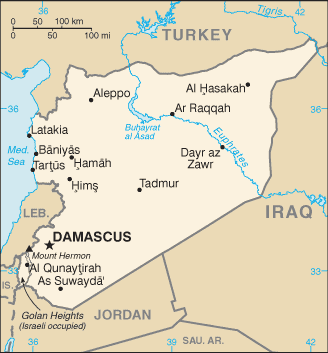In televised comments, Syrian President Bashar Assad expressed doubt about the chances of a ceasefire getting into place later this week, as scheduled under last week’s Munich deal, saying he doesn’t believe it would be possible to get a full ceasefire together that quickly.
 Assad says to him a full ceasefire would also mean halting the movement of weapons among “terrorist” factions, along with those groups, who he defined as all rebels, strengthening their position anywhere in Syria. He said such moves would not be allowed.
Assad says to him a full ceasefire would also mean halting the movement of weapons among “terrorist” factions, along with those groups, who he defined as all rebels, strengthening their position anywhere in Syria. He said such moves would not be allowed.
Assad also said that the Munich deal left too many questions unanswered, including who is going to hold the rebels to account in complying with the deal, and what is supposed to happen when rebel groups reject the deal and go back on the offensive.
The Munich deal appears to have largely come from the international community without much input from anyone within Syria, and there seem to be considerable doubts on all sides that the end of the week will see anything more than a token effort.
That’s not necessarily a disaster, as many ceasefires require multiple tries before they really take hold, but the diplomatic hot-button issue of Syria is likely to see any failed ceasefire followed by a lot of finger-pointing and international escalation of rhetoric.


